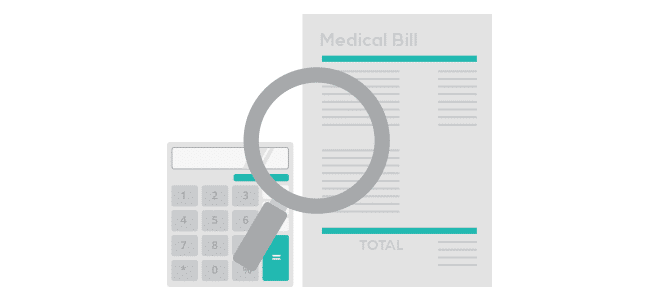Negotiating Medical Bills
When unexpected illness strikes, one of the last things a recovering patient wants to think about is whether he or she can afford to pay the often staggering amount of money associated with the medical bills that follow. It’s no secret that affordable health care within the United States remains a serious problem, even for those who maintain some form of health insurance.

Per capita, the average U.S. citizen spends approximately $9,000 per year on health care, while 20% of working-age Americans with health insurance have difficulty paying off medical bills. For those working-age Americans who lack health insurance, 53% have difficulty paying off medical bills. Clearly, for individuals who are staring down medical debt, it is important to be aware of any possible remedies for reducing the debt burden.
Negotiating medical bills is possible, but it is important to know how to best approach the process while keeping medical bills out of medical collections. Let’s take a closer look.
Table Of Contents
Examine All Medical Bills Closely
Mistakes run rampant on medical bills and they take many different forms. Whether it’s an instance of name-brand medication being charged when a generic was administered, or medical tests and services related to the same diagnosis that should have been bundled but are billed separately and at a higher rate, or an instance of duplicate billing for the same procedure, or a denial from an insurance company that results from an improperly coded billing error that it is not subsequently addressed by the provider but is then simply passed down to the patient – the list goes on and on.
There are many types of billing errors and many ways for them to happen – so the first response is to not be intimidated by medical bills and to be prepared to ask any and all questions politely to a contact person at the medical provider (hospital or doctor’s office) billing office. It is important to be polite and civil – being angry and bitter will not work to your advantage – anticipate that employees in billing offices will take notes of any and all conversations.
Furthermore, the day may come when you visit the hospital billing department in person to discuss negotiation of your medical bills, so treat any initial phone conversations as laying the groundwork for further in-person discussion and negotiation.
ABC
Plan Ahead When Possible
In those instances when a patient knows that they are headed for a procedure, it absolutely makes sense to gather price quotes for all fees associated with the procedure, as well as for all doctors and services beyond the actual surgeon – this includes any radiologists, anesthesiologists, lab technicians and subsequent lab work.
Always aim to use in-network providers only, get price quotes in writing, and inquire about any possible discounts. For instance, some doctors and many hospitals offer charity care programs that provide discounts, while some hospitals participate in networks that give discounts to those who pay bills over the phone.
In all instances, ask about these possible discounts, as medical providers will not necessarily be proactive in disclosing the existence of them. Additionally, maintain a solid understanding of your health care plan – know your deductible, co-pays for various providers, and the percentage of co-insurance that you are responsible for beyond the percentage of what your insurance company will cover for a procedure.
Visit the Hospital Medical Billing Department In Person
Following initial phone calls during which you politely and firmly raise any questions related to your medical bills and any possible errors – as well as any available discounts and charity care programs – the next step is to visit the billing department in person. Explain your financial situation and that paying will be a challenge.
Offer to pay a small amount each month and request that the bills not be sent to an external collections agency, as this will impact a credit score and profile. Offer to pay a percentage of the bill up front and ask for an interest-free payment plan during which you will make small payments each month. It is not uncommon for health care providers to allow up to two years from the original billing date for the payment of medical bills. Additionally, if your financial situation improves, you can eventually make an offer to pay a percentage of the remaining balance in one lump sum at that time.
Always be polite and firm with the billing department, always closely review your bills for errors. Always understand the parameters of your medical plan and always maintain an awareness of provider charity care programs and discounts. If you take these steps, you may be pleasantly surprised at what you can accomplish through careful negotiation of your medical bills.

Are you in debt? we can help
Get Debt Relief
Speak with licensed debt specialists dedicated to guiding you toward financial stability every step of the way.

Ready To Get Started?
See if you qualify for debt relief. Get a Free savings estimate to see how quickly you can be debt free.
Embrace financial freedom with our tailored solutions, expert guidance, and unwavering commitment to your success.
Experienced Professionals
Our experienced team has helped thousands of clients successfully eliminate debt and regain financial freedom.
Customized Solutions
We know every financial situation is different, so we design personalized debt relief plans to fit your specific needs and goals.
High Success Rate
Our proven debt relief strategies deliver real results. With a strong track record of success, we help clients achieve lasting financial stability.
Confidential Consultation
Your privacy is our priority. All debt relief consultations are 100% confidential and handled with the highest level of discretion.
Explore other blogs











